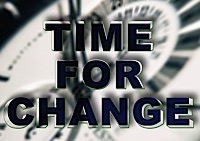 Good news for candy and chocolate lovers: they tend to weigh less, have lower body mass indices (BMI) and waist circumferences, and have decreased levels of risk factors for cardiovascular disease (CVD) and metabolic syndrome, according to a new study(1) published in Nutrition Research.
Good news for candy and chocolate lovers: they tend to weigh less, have lower body mass indices (BMI) and waist circumferences, and have decreased levels of risk factors for cardiovascular disease (CVD) and metabolic syndrome, according to a new study(1) published in Nutrition Research.
The findings are positive, but lead researcher Carol O’Neil, PhD, MPH, LDN, RD, Louisiana State University Agricultural Center, cautions it is all things in moderation. “We certainly don’t want these results positioned as eating candy helps you to lose weight,” she said. “This study adds to the evidence base that supports candy’s role as an occasional treat within a healthy lifestyle.”
innovation DAILY
Here we highlight selected innovation related articles from around the world on a daily basis. These articles related to innovation and funding for innovative companies, and best practices for innovation based economic development.
Social Networks a Coming Trend at Work - Technology Review
 Industry research shows that the market for collaboration software used by corporations—commonly called Enterprise 2.0 technology—is growing, despite the sluggish economy. Gartner, an information technology industry analyst group, began tracking revenue growth of social business software in 2009. Gartner predicts the market for enterprise social software technologies will continue to grow from $664 million in 2010 to $1.3 billion in 2014.
Industry research shows that the market for collaboration software used by corporations—commonly called Enterprise 2.0 technology—is growing, despite the sluggish economy. Gartner, an information technology industry analyst group, began tracking revenue growth of social business software in 2009. Gartner predicts the market for enterprise social software technologies will continue to grow from $664 million in 2010 to $1.3 billion in 2014.
Creativity and Culture-Linked Industries are More Resilient to Economic Crisis
 New York (Vocus/PRWEB) March 30, 2011
New York (Vocus/PRWEB) March 30, 2011
Creative industries have shown more resilience to the impact of the global economic crisis than traditional manufacturing industries, according to the Creative Economy Report 2010 launched, today, at the United Nations.
Global exports of creative goods and services-ideas and creativity-centred industries such as arts and crafts, audiovisuals, books, design, films, music, new media, visual and performing arts- have more than doubled from 2002 to 2008, reaching nearly US$600 billion, according to the Report.
Let There Be Light Bulbs - NYTimes.com
Of all the controversies now raging in Washington, the one I find most endearing is the fight over federal regulation of light bulb efficiency.
“Instead of a leaner, smarter government, we bought a bureaucracy that now tells us which light bulbs to buy,” complained Representative Michele Bachmann in her Tea Party response to the president’s State of the Union address.
Bachmann has strong opinions on this matter. She is the author of the Light Bulb Freedom of Choice Act, which would repeal a federal requirement that the typical 100-watt bulb become 25 percent more energy efficient by 2012.
As Budgets Tighten, Big Science Gets a New Opportunity to Make Its Case - Government - The Chronicle of Higher Education
 Research universities face a long list of seemingly intractable problems.
Research universities face a long list of seemingly intractable problems.
Faculty too often work in subject-specific silos. Taxpayer-supported basic science doesn't get converted by industry into useful products and jobs. The vagaries of federal financing play havoc with laboratory projects and staffing. And now, making it even worse for some universities, Congress is cutting off budgetary "earmarks" reserved for many big-picture projects.
One possible solution—known as interdisciplinary science, or "team science"—is ripe for a surge in growth. An early sign: a new group of campus-based grant experts, known as the National Organization of Research Development Professionals, has ballooned from 32 to 232 members in the past two years, with what its leadership sees as a focus on promoting interdisciplinary science.
Google Picks Kansas City, Kansas For Its First Super-Fast Fiber Network
 Google just announced Kansas City, Kansas -- pop. 145,000 -- as its first city for building out a super-fast fiber optic network, to offer Internet access that is supposedly "more than 100 times faster than what most Americans have today."
Google just announced Kansas City, Kansas -- pop. 145,000 -- as its first city for building out a super-fast fiber optic network, to offer Internet access that is supposedly "more than 100 times faster than what most Americans have today."
The network will launch in 2012. No word yet on pricing, or whether the operator will offer unlimited access or metered access.
Why is Google doing this?
As we noted a year ago, when Google first announced these trials, it's not because Google really wants to become a telecom company.
4 Trends Your Business Should Take Advantage of Now
 Every once in a while it’s a good idea to sit back, take stock and assess how some of today’s current trends could benefit your business. Here are four to consider that have both marketing and operations implications for your company.
Every once in a while it’s a good idea to sit back, take stock and assess how some of today’s current trends could benefit your business. Here are four to consider that have both marketing and operations implications for your company.
1. Going mobile. Mobile marketing is becoming increasingly important as consumer adoption of smartphones increases. Whether you market to businesses or consumers, your customers are increasingly accessing the Internet and using phones as shopping tools. But according to the fifth Small Business Success Index survey released recently, few small business owners currently use mobile marketing methods such as texting promotions to customers, creating a mobile site or mobile application, and advertising on mobile sites. Just 15 percent of entrepreneurs surveyed said these activities have the potential to be “extremely” or “very valuable” to their businesses. I think this is a big mistake. Young people are an obvious market for mobile marketing, but with smartphones becoming essential tools for everyone from soccer moms to businesspeople, no business can afford to ignore this trend.
America, meet your future (young) innovators - SmartPlanet
 “When I grow up, I want to be a software developer.”
“When I grow up, I want to be a software developer.”
U.S. chief technical officer Aneesh Chopra on Wednesday announced the winners of the National STEM Video Game Challenge, a competition for primary school-aged kids to develop educational video games for their peers.
The point of the competition is to motivate interest in the STEM fields: science, technology, engineering, and math.
There were two separate competitions: one for students, and one for experienced developers. The 12 winners of the student competition — in grades 5 through 8 — were selected for their original game designs from a pool of more than 500 entries.
Today’s napkin entrepreneuers take to the Web | VentureBeat
 The barriers for starting a company have come down.
The barriers for starting a company have come down.
Today the total available markets for new applications are hundreds of millions if not billion of users, while new classes of investors are popping up all over (angels, superangels, archangels, and even seraphim and cherubim have been spotted.)
Entrepreneurship departments are now the cool thing to have in colleges and universities, and classes on how to start a company are being taught over a weekend, a month, six weeks, and via correspondence course.
If the opportunity is so large, and the barriers to starting up so low, why haven’t the number of scalable startups exploded exponentially? What’s holding us back?
The History Of Internet Usage And Speeds (Infographic)
Not a fan of infographics? Be gone!
For I felt compelled to share with you this infographic made by the folks over at Webhostingbuzz, visually showing how fast the Internet has made its way to the people of this world in the past 15 years – and how fast the Internet has become in some parts of it.
Here’s what stood out for me: the United States leads the world in broadband penetration, with Americans consuming way more gigabytes per month than Europeans or people in Japan and South Korea.
The United States only ranks 30th when it comes to downloads speeds, however, thus trailing countries like South Korea, Latvia, Andorra and the Republic of Moldova. Surprisingly, downloads speeds in the US still surpass those in the UK, Canada, Australia and Israel.

Innovators shop around for best place to live - Q&A with Daniel Johnson - Colorado Springs Gazette, CO
 Colorado Springs and other communities throughout the nation are trying to attract innovators, but attracting innovative people is a different process from luring businesses, said Daniel K.N. Johnson, a Colorado College economics professor and director of the college’s Innovative Minds Program.
Colorado Springs and other communities throughout the nation are trying to attract innovators, but attracting innovative people is a different process from luring businesses, said Daniel K.N. Johnson, a Colorado College economics professor and director of the college’s Innovative Minds Program.
Johnson will discuss “Where Innovation Lives” in a speech to the Colorado College Business and Community Alliance at 11:30 a.m. Wednesday at the Antlers Hilton hotel, 4 S. Cascade Ave. Cost of the luncheon is $30; registration is through the Greater Colorado Springs Chamber of Commerce.
Johnson is the Gerald L. Schlessman professor of economics and associate chair of the Economics and Business Department at the college. He specializes in the economics of innovation and technological change, and frequently advises and lectures internationally on public policy related to intellectual property rights.
Call For Start-Ups, Entrepreneurs, & Inventors
 Are you an entrepreneur, inventor, or working for a start-up?
Are you an entrepreneur, inventor, or working for a start-up?
If so, here is an opportunity for you to get in front of 1,000 influential futurists and an online community of over 35,000.
We are pleased to announce the Futurists: BetaLaunch in partnership with the World Future Society, a 45-year old non-profit organization dedicated to advancing ideas of the future.
This launch platform will take place in July at the World Future Conference in Vancouver, Canada. The audience will be an enthusiastic and sophisticated group of customers, investors, forecasters, political figures, early adopters, engineers, and more!
The Truth About What It Takes to Be an Entrepreneur
 “The very rich,” according to a character in an F. Scott Fitzgerald story, “are not like you and me.” To that, a character in an Ernest Hemingway story famously responded, “Yes, they have more money.”
“The very rich,” according to a character in an F. Scott Fitzgerald story, “are not like you and me.” To that, a character in an Ernest Hemingway story famously responded, “Yes, they have more money.”
If only someone could replicate Papa’s trick to define what makes entrepreneurs not like you and me. Despite efforts of generations of researchers into how people who found businesses differ from the rest of us, a similarly simple and straightforward explanation has not been forthcoming. The latest attempt, based on analyzing responses to 12,000 surveys administered to both entrepreneurs and the rest of us, does little to resolve the issue.
Psychological assessment purveyor Psychtests in conjunction with Bill Wagner, author of “The Entrepreneur Next Door,” put together a quiz that promises to explain to the rest of us “what it takes to succeed.” But the result is not itself all that successful. Psychtests examined respondents for seven traits: conscientiousness, drive, optimism, networking ability, risk-taking, self-sufficiency and social skills. Does it really take all that to start and run a business?
Why Escalators Bring out the Best in People: Scientific American
 Let’s say you are trying to sell cookies for a school fundraiser at the local mall, and you want to pick the ideal spot to set up your table. You’d probably look for an area with a lot of traffic. And once you’d picked your spot, you would no doubt give some thought to your pitch. A friendly hello and nice smile would set the stage nicely. Perhaps it would be a good idea to offer samples or to have friends hanging around saying nice things about the cookies or the school.
Let’s say you are trying to sell cookies for a school fundraiser at the local mall, and you want to pick the ideal spot to set up your table. You’d probably look for an area with a lot of traffic. And once you’d picked your spot, you would no doubt give some thought to your pitch. A friendly hello and nice smile would set the stage nicely. Perhaps it would be a good idea to offer samples or to have friends hanging around saying nice things about the cookies or the school.
A recent Journal of Experimental Social Psychology article by Larry Sanna and his associates at the University of North Carolina suggests a more surprising factor that you might want to consider – proximity to an escalator.
Government Tech Innovation Would Come to a Screeching Halt Under New Budget Proposals | Fast Company
 The Obama administration swept into Washington in 2008 with promises of both increased transparency and increased use of modern technologies, two things our political system desperatley needed. And while both promises somewhat fell victim to standard Washington infighting and inertia, some of the results were impressive, especially the high-profile Data.gov, which aggregates all government data sets, and USASpending.gov, where you can see how much money government contracts are worth.
The Obama administration swept into Washington in 2008 with promises of both increased transparency and increased use of modern technologies, two things our political system desperatley needed. And while both promises somewhat fell victim to standard Washington infighting and inertia, some of the results were impressive, especially the high-profile Data.gov, which aggregates all government data sets, and USASpending.gov, where you can see how much money government contracts are worth.
But the budget process--currently in danger of shutting down the government entirely--is not being kind to the Government Electronic Fund (GEF), the umbrella government organization that funds these programs and more. Budgets proposed by the Republicans in the House and some Democrats in the Senate both cut the program's funding from $32 million to a mere $2 million, potentially destroying all the progress that the administration has made in transparency and technology.
7 Signs of a Wimpy Boss | BNET
 With all the hoopla over bad bosses and dysfunctional managers, I never thought to look at the flip-side until I read a post by Jill Geisler of the Poynter Institute. Sure enough, there’s a huge downside to managers being wimpy or too nice.
With all the hoopla over bad bosses and dysfunctional managers, I never thought to look at the flip-side until I read a post by Jill Geisler of the Poynter Institute. Sure enough, there’s a huge downside to managers being wimpy or too nice.
No, not just nice. Too nice. What’s the difference? Good question.
* Nice is treating employees with the respect they deserve. Too nice is being a doormat and letting people walk all over you.
* Nice is giving employees the flexibility to work from home periodically. Too nice is a staff meeting in an empty conference room because everyone’s out screwing around.
* Nice is being honest about your employee’s strengths and weaknesses come review time. Too nice is when your people get crappy raises because you didn’t fight for them.
And on the Side, I'm an Entrepreneur - US News and World Report
 Five o'clock used to mean happy hour, soccer practice, or a few hours in front of the tube. But for an increasing number of professionals, powering down the computer at the office now means powering up the laptop at home.
Five o'clock used to mean happy hour, soccer practice, or a few hours in front of the tube. But for an increasing number of professionals, powering down the computer at the office now means powering up the laptop at home.
With new technologies that make it cheaper to start your own business and a widespread need to earn additional income during the recession, more professionals are taking on paying projects in addition to their day jobs. Whether you're selling a service or promoting a product or driving traffic to a website, juggling a business on the side is the new nine-to-five.
"There is this brand new phenomenon," says Paul Kedrosky, a senior fellow at the Kauffman Foundation, a nonprofit organization that focuses on entrepreneurship. "People are being entrepreneurs almost in their spare time, which you could never do before, at least never do in a way that was profitable."
41 Ways Business Leaders Can Foster a Culture of Innovation
Y es, we know you want your organization to be more innovative. And yes, we know you want to improve your organization's culture of innovation. The best place to start? With YOU.
es, we know you want your organization to be more innovative. And yes, we know you want to improve your organization's culture of innovation. The best place to start? With YOU.
1. Give up needing to be the smartest person in the room.
2. Seek out people who think differently than you do.
3. Reward new thinking.
4. When you delegate, delegate.
5. Listen more, tell less.
6. Create an environment where no idea is considered dumb.
Too Much Entrepreneurship Is a Bad Thing - Bill Taylor - Harvard Business Review
 At the risk of sounding like a Grumpy Old Man, and with near certainty that this post will be roasted by many who read it, I am about to make the case that there is such a thing as too much entrepreneurship — or at least too much excitement about becoming an entrepreneur too early in life.
At the risk of sounding like a Grumpy Old Man, and with near certainty that this post will be roasted by many who read it, I am about to make the case that there is such a thing as too much entrepreneurship — or at least too much excitement about becoming an entrepreneur too early in life.
I know, I know. This blog, and all of my work over the last 15 years, has celebrated the spirit of innovation, disruption, and changing the game. But last week, when the New York Times published one of those bound-for-the-time-capsule reports on the culture of Silicon Valley, I for one had had enough. Anything in excess is a poison, after all, and in America we've made the phenomenon of taking every good idea to excess our new national pastime. That's what we may be doing with entrepreneurship today. The startup bug has become a startup fever, and that fever may be driving many people to hysteria.


